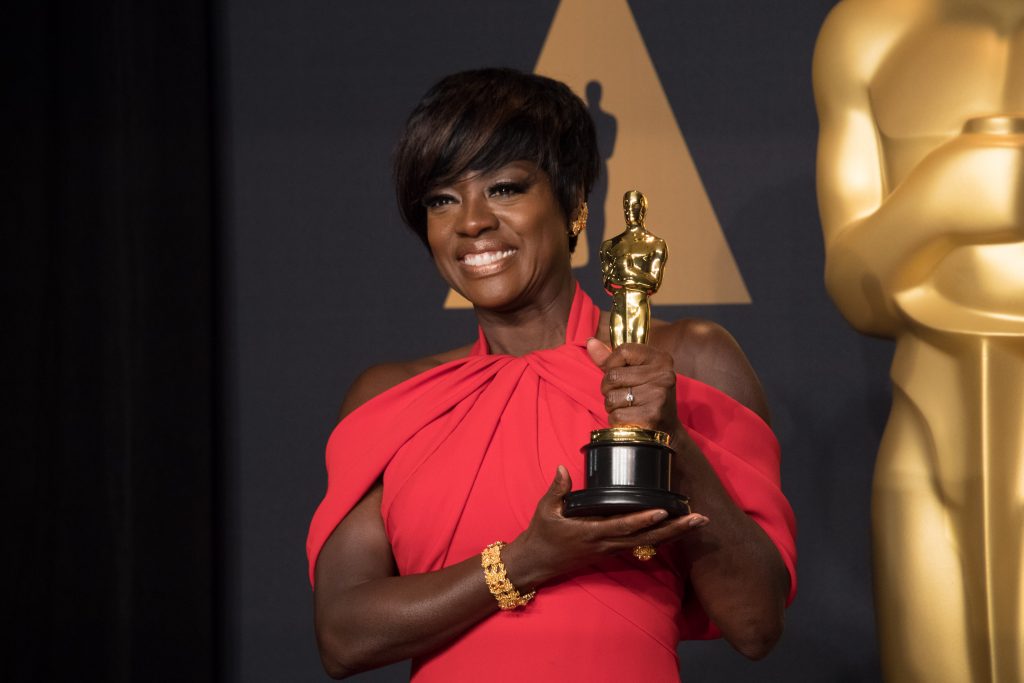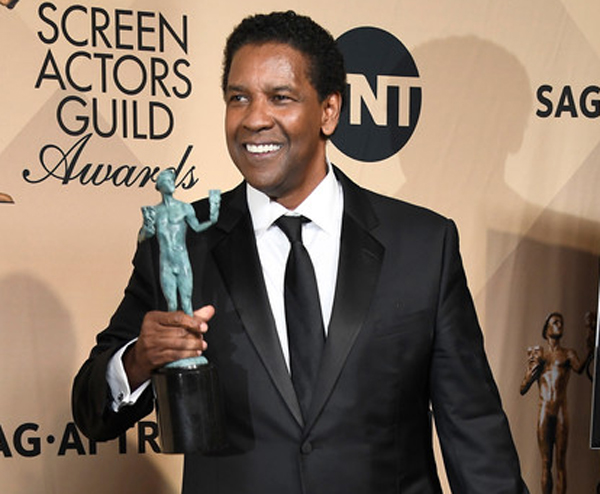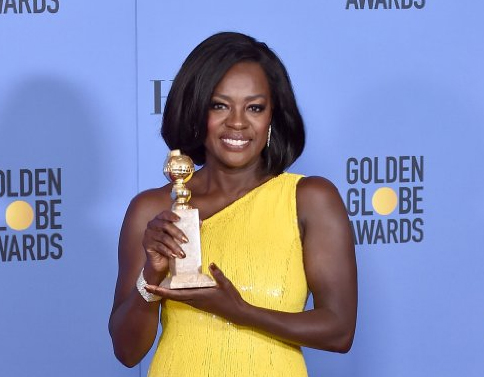February 27, 2017
by Carla Hay
The 89th Annual Academy Awards took place on February, 26, 2017, at the Dolby Theatre in Los Angeles.
VIOLA DAVIS
Oscar win:
Best Supporting Actress
(“Fences”)
Here is what this Oscar winner said backstage in the Academy Awards press room.

BACKSTAGE INTERVIEW
You talked about how much your parents have supported you. Is there anything that they said to you when you were growing up that you kept with you and that you pass onto others?
That they loved me. And my mom always said, “I knew the difference between an accountant and an actor,” but she was always okay with it. You know, someone told me years ago, they said, “You have the best parents.” I said, “I do?” And they said, “Yeah, because they’re okay with just letting you fly. They’re not stage parents.” And I think that’s the biggest gift my parents gave to me is to kind of allow me to live my own life. They weren’t living their dreams through me.
How did playing your “Fences” character Rose challenge you?
Everything about Rose challenged me. Rose just kind of seemingly just being sometimes at peace with being in the background was hard to play. Rose getting to a place of forgiveness was hard to play. That last scene when I did 114 performances on stage, I didn’t understand the last speech when she said, “I gave up my life to make him bigger.” I didn’t get that.
But what Rose has taught me is a lot of what my mom has taught me: That my mom has lived a really hard life, but she still has an abundance of love. That’s the thing about life. You go through it, and terrible things happen to you, beautiful things happen to you, and then you try to just stand up every day, but that’s not the point. The point is feeling all those things but still connecting to people, still being able to love people. And that was the best thing about playing Rose because I’m not there yet. Even at 51, sometimes I just kind of live in my anger.
What would your TV alter ego Annalise Keating from “How to Get Away With Murder” say about your Oscar win?
Oh, she would most definitely say, “I deserve this.” And then she would have some vodka. And in that, we are very similar.
Viola, what are you feeling right now? What is going through your head right now? What is your experience?
It’s easier to ask the alter ego. I feel good. You know, it’s not my style to just kind of wake up and go, “Oh, I’m an Oscar winner. Oh, my gosh, let me go for a run.” You know. I’m good with it. I’ll have some mac and cheese, and I’ll go back to washing my daughter’s hair tomorrow night. But this is the first time in my life that I’ve stepped back—and I’m going to try not to cry now. All of a sudden. Be cheesy. And I can’t believe my life.
My sister is here somewhere, and I grew up in poverty. I grew up in apartments that were condemned and rat‑infested, and I just always sort of wanted to be somebody. And I just wanted to be good at something. And so this is sort of like the miracle of God, of dreaming big and just hoping that it sticks and it lands, and it did. Who knew? So I’m overwhelmed. Yeah.
What moment was it during those “Fences” performances on stage when you started back in 2010 that you and Denzel said, “Maybe we should make a film out of this. Maybe we could do that.”?
There was no moment, one moment on the stage. It’s the whole, every moment on the stage. The thing that I love about August Wilson is that he let’s people of color speak, and a lot of times I’m offered narratives where people will say a whole lot of things are happening in this scene, but it’s just not on the page.
There’s no words. There’s no journey. There’s no full realization of who we are. There’s no boldness. There’s no taking risks for being anything different. I love every moment of this film is about the beauty of just living and breathing and being human. And not didactic, not being a walking social message. They do that with us a lot, as people of color.
Audiences love us when we represent something. I just want to represent me, living, breathing, failing, getting up in the morning, dying, forgiveness. August was the inspiration. You know, and Denzel decided he was going to do the movie from the moment he was given the script. He just said, “Let me do the play first.” So that’s it.
What do you love about being a black woman?
Everything. I love my history. I love the fact I can go back and look at so many different stories of women that have gone before me who seemingly should not have survived, and they did. And I love my skin. I love my voice. I love my history. Sometimes I don’t love being the spokesperson all the time, but so be it. That’s the way that goes, right? But at 51, I’m sort of loving me.
What makes a great story?
What makes a great story? What makes a great story most definitely is fully realized characters, great writing, definitely, where a character is introduced to you from the very beginning and they go on a journey that’s unexpected, and then they arrive someplace completely different from where they started. What makes a great story is the element of surprise. And what makes a great story absolutely is if it has a central event that helps people connect to a part of themselves.
And in that, “Fences” had it all. Because that’s what it’s about, right? You want to connect. I mean, sometimes you want to eat the buttered popcorn and the Milk Duds and the Sour Patch Kids. I do that a lot too, and Diet Coke. But more often, you want to be shifted in some way in your thinking in your feeling about who you are in the world,. That would be a great story.



